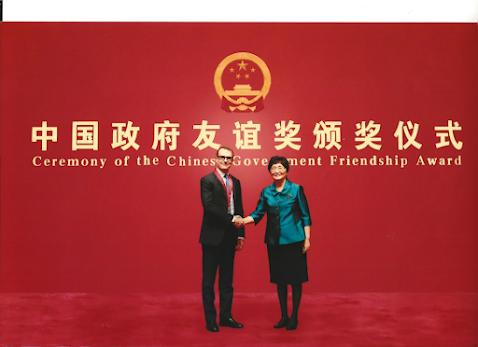CBCGDF’s Recommendation: management of "ballast water" be explicitly included in the latest version of “Haikou Port Overall Plan”
Recently, the Hainan Provincial Department of Transportation publicly issued the first public notice of the environmental impact assessment of “Haikou Port Overall Plan” (Revised). The Invasive Alien Species Working Group of the China Biodiversity Conservation and Green Development Foundation (CBCGDF) responded positively to the call, and after careful study, the CBCGDF Invasive Alien Species Working Group recommends that the management of “Ships' Ballast Water” be explicitly included in the new version of “Haikou Port Overall Plan”.
The reasons are as follows:
(i) Ships' Ballast Water, as an important carrier of invasive alien
species, poses a potential threat to global biodiversity and ecosystem
stability. A wide range of organisms may be present in ships’ ballast water,
including microorganisms, plankton, and eggs, larvae or adults of plants and
animals. When the ballast water is discharged into new environments, these
organisms can enter unfamiliar ecosystems and establish new populations.
(ii) This is a need for international compliance. The International
Convention for the Control and Management of Ships' Ballast Water and Sediments,
commonly referred to as the Ballast Water Management Convention, was promulgated
by the International Maritime Organization (IMO) in 2004 to prevent the spread
of harmful alien species by ships through ballast water. In order to ensure its
effective implementation, the Convention provides for an international ballast
water management certification scheme for ships and requires States parties to
inspect and monitor ships. Contracting Parties are also required to establish
national ballast water management regulations & policies and offer
appropriate guidance and training. On October 22, 2018, the Chinese Embassy in
the United Kingdom formally presented China's instrument of accession to the
International Convention for the Control and Management of Ships' Ballast Water
and Sediments, 2004 (hereinafter referred to as the Ballast Water
Convention) to the Secretary General of the International Maritime
Organization (IMO), Mr. Kiser Lin, on behalf of the Chinese government, and the
Ballast Water Convention officially entered into force for China from
January 22, 2019 onwards. Therefore, it is also a requirement for international
compliance to specify the management requirements of "ships’ ballast
water" in the new version of “Haikou Port Overall Plan”.
Original Chinese Article: https://mp.weixin.qq.com/s/luOU2lc2JuUeJWynSNg-Ww
Translator: Samantha
Editor: Samantha
Contact: V10@cbcgdf.org; +8617319454776
Contribution
Do you know? CBCGDF is a non-profit organization. We rely on crowd-funding and donations. You have the opportunity to help us to advance biodiversity conservation. Donate TODAY to power up the movement to make it a better world for all life.
https://www.paypal.me/CBCGDFChina
http://www.cbcgdf.org/English/ConfirmDonaTion/0.html





Comments
Post a Comment